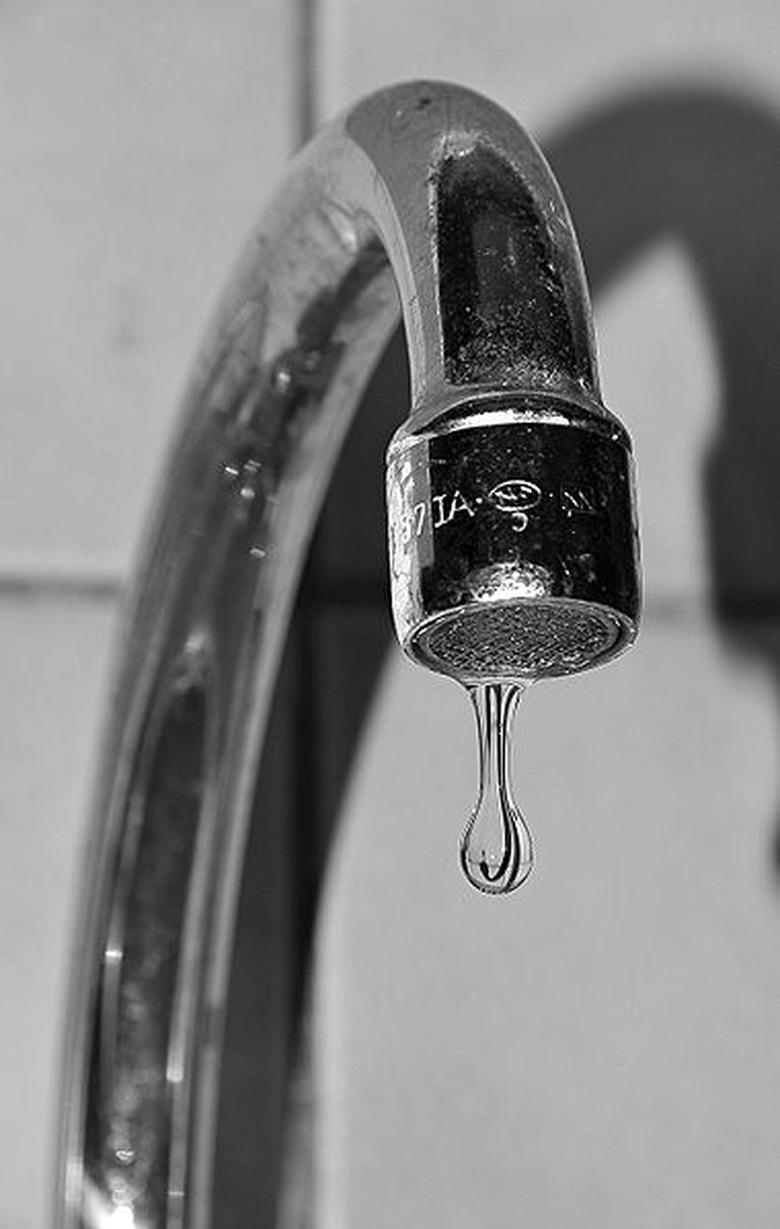10 Ways To Save Water
Water is one of the biggest commodities on Earth. Unfortunately, it's also one of the most misused and abused resources, making it a scarce resource in many parts of the world. In fact, according to the United Nations Population Fund, half of the world's population lacks clean drinking water. Between the depletion of this resource and the high costs associated with enjoying an overabundance of this resource, it only makes sense to save water and, therefore, money, wherever you can.
Turn the Water Off When Not in Use
Turn the Water Off When Not in Use
If you're in the process of brushing your teeth, scrubbing your face or de-gunking dishes, turn the water off. Turn it back on only when you're ready to rinse. Limit the length of your showers and baths.
Throw Unwanted Food Away
Throw Unwanted Food Away
The garbage disposal is a huge source of water waste because water must remain running as the disposal breaks down food. Instead, you could throw extra scraps away, give them to pets or even create a compost pile for a garden.
Insulate Water Pipes
Insulate Water Pipes
Water pipes that are not insulated waste significantly more water because it takes them longer to heat up. By insulating pipes, water will be able to heat quicker, thereby reducing the amount of undesired cool water that snakes down the drain before your hot water appears.
Repair Leaks
Repair Leaks
Leaky pipes, hoses, faucets, shower heads and nozzles can waste gallons of water a day. Go through your home and inspect these devices, listening for drips and feeling for moisture. Tighten these appliances with a wrench. If you cannot fix the problem yourself, you may need to hire a plumber or to replace the appliance altogether.
Wash Full Loads
Wash Full Loads
Dishwashers and washing machines usually have a default setting that allows them to provide enough water to clean a full load of dishes or clothing. This setting is great if you've provided a full load. However, many people use these appliances even when they have only a small number of items to clean. Therefore, place these appliances on a lower setting, which will utilize less water, power and time, when you're washing less than a full load. If your appliances have only one setting, save your dirty items until you have a full load.
Wash by Hand
Wash by Hand
You can further conserve water by washing dishes and clothing by hand. Fill the sink with water and splash the dishes to remove excess food and debris. Then give them a short wash and scrub instead of turning to the dishwasher. Do the same for clothing. Fill a tub with sudsy water, give clothing a dunk, followed by a quick scrub and then hang to dry.
Adjust Sprinklerheads
Adjust Sprinklerheads
Oftentimes homeowners have no idea where their sprinklers are actually pointing, resulting in wet cement and dried grass. This is because most homeowners don't monitor their sprinklers; they simply set them on an automatic timer and assume they're doing their jobs. Watch your sprinklers for a full session and readjust them where necessary to prevent water from being wasted.
Locate the Water Turn-Off Switch
Locate the Water Turn-Off Switch
Every home comes with a master switch that will turn off all water once engaged. Locate this switch within your home and test it to be sure that you know how to use it and that it's functioning properly. In case of an emergency, such as a burst pipe or flooding, you'll be able to immediately switch off the water to the home, saving a countless supply of water that would have otherwise been wasted, possibly also resulting in damage to the home.
Update Your Landscaping
Update Your Landscaping
There are many plants and flowers, such as grass and roses, that require frequent watering in order to thrive. However, there are numerous alternatives to these front yard staples that can be equally as beautiful without sucking up so much water. They include lavender and some types of lilacs, as well as cacti and other desert-dwelling plants.
Install Water-Saving Appliances
Install Water-Saving Appliances
There are numerous water-saving alternatives to traditional appliances. Low-flow faucets, low-flush toilets and flow-regulating shower heads are ideal. They help users save water, while having very little impact on these daily activities.
